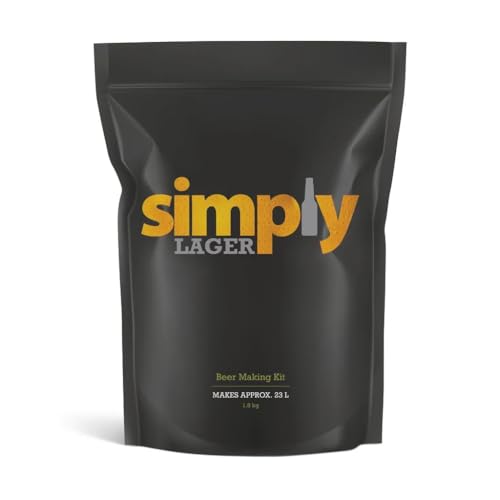Hi there,
I'm new to this and have some pretty basic questions to ask before I get my first brew going tomorrow. I haven't bought bottles or kegs yet and was just wondering about the relative merits of each. Instinctively, kegging seems like it might be a more time efficient way to go and worth investing in some kegs as I'm planning on doing quite a few brews. Is it difficult to keg? Does it require any specialist equipment? Do I need to add anything to create pressure and carbonate the beers? I'm mainly planning on doing IPAs and stouts just now if this helps. Does bottling have any particular advantages?
Cheers for any help and sorry if these are silly questions!
I'm new to this and have some pretty basic questions to ask before I get my first brew going tomorrow. I haven't bought bottles or kegs yet and was just wondering about the relative merits of each. Instinctively, kegging seems like it might be a more time efficient way to go and worth investing in some kegs as I'm planning on doing quite a few brews. Is it difficult to keg? Does it require any specialist equipment? Do I need to add anything to create pressure and carbonate the beers? I'm mainly planning on doing IPAs and stouts just now if this helps. Does bottling have any particular advantages?
Cheers for any help and sorry if these are silly questions!




 ) and for specialty beers, but I do bottle a few here and there from each brew ready for those occasions when I want to transfer my beer away from home. Plastic kegs cannot contain the same pressures that good bottles can.
) and for specialty beers, but I do bottle a few here and there from each brew ready for those occasions when I want to transfer my beer away from home. Plastic kegs cannot contain the same pressures that good bottles can.











![BREWING THERMOMETER STICKERS ACCURATELY MONITOR FERMENTING BEER & WINE LIQUID TEMPERATURES 5PCS HOME BREW SPIRITS WINE LCD ADHESIVE [US]](https://m.media-amazon.com/images/I/311DDjo2X3L._SL500_.jpg)

























 Some guys don't want to go AG 'cos a brewday takes too long', don't bottle 'cos it takes too long' :wha: this is a hobby and 'bodding about' on a brewday and bottling should all be part of the enjoyment surely :thumb:
Some guys don't want to go AG 'cos a brewday takes too long', don't bottle 'cos it takes too long' :wha: this is a hobby and 'bodding about' on a brewday and bottling should all be part of the enjoyment surely :thumb: